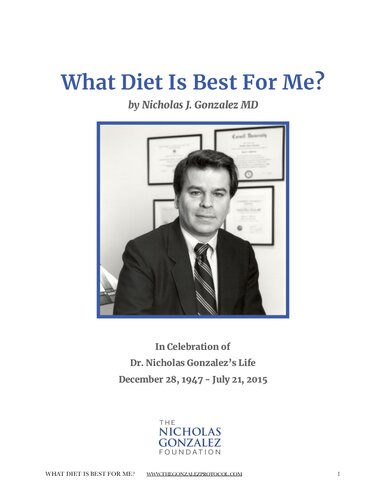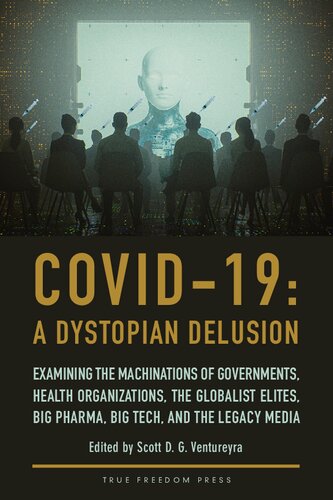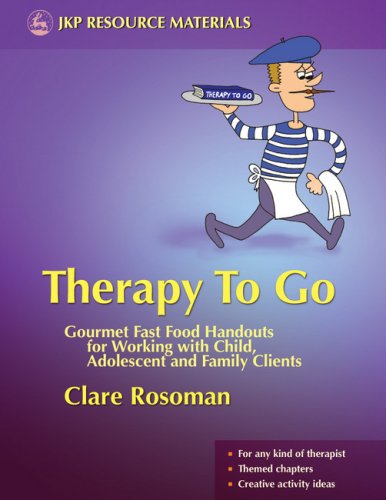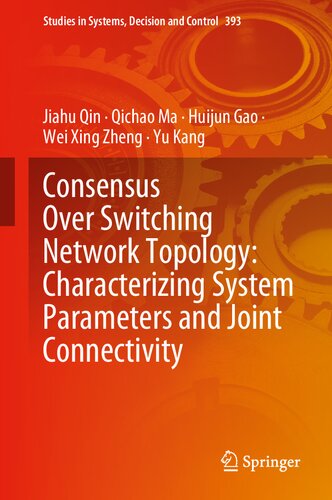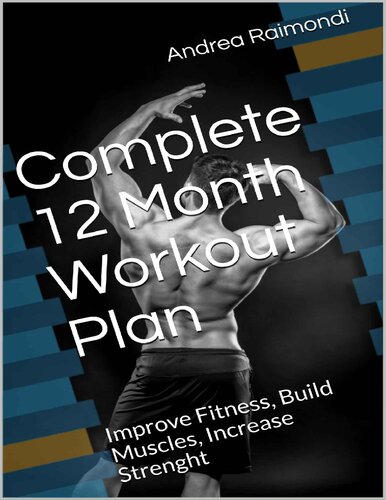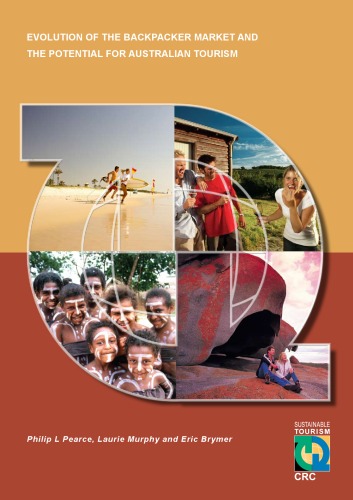موضوعات
آموزش و پرورش
ادبیات و زبان
پزشکی، دندانپزشکی و داروسازی
تاریخ و جغرافیا
داستان و رمان
دیگر
دین و فلسفه
روانشناسی
ریاضیات و آمار
سلامتی، تناسب اندام و رژیم غذایی
شیمی و پلیمر
علوم اجتماعی و حقوق
علوم زیستی و بیوتکنولوژی
فیزیک و نجوم
کامپیوتر و اینترنت
کتابهای کودکان و داستان
کسب و کار و اقتصاد
کشاورزی و دامپزشکی و غذا
معماری
مهندسی و فناوری
هنر و تئاتر
محصولات
Dismantling the Ketogenic Diet - What diet is best for me by Dr Nicholas Gonzales MD ( pioneer in pancreatic enzymes natural cancer cure ) - Original PDF
نویسندگان: خلاصه: During a postgraduate immunology fellowship under Dr. Robert A. Good, considered the father of immunology, he completed a research study evaluating an aggressive nutritional therapy in the treatment of advanced cancer. His nutritional research received substantial financial support from Proctor and Gamble and Nestlé. Results from a pilot study published in 1999 described the most positive data in the medical literature for pancreatic cancer.COVID-19: A Dystopian Delusion: Examining the Machinations of Governments, Health Organizations, the Globalist Elites, Big Pharma, Big Tech, and the Legacy Media - Original PDF
نویسندگان: خلاصه: Since March of 2020, the world has been brought to its knees by unscientific and unethical mandates. These mandates have destroyed the world economy and the lives of countless innocent individuals. The “cure” that has been offered by medical bureaucrats and politicians has been more deadly than the disease (COVID-19). The imposition of ludicrous lockdowns, mask wearing, coerced vaccination, and vaccine passports have not only proved to be ineffective, but also much more harmful than SARS-CoV-2 and all its variants. COVID-19 has a recovery rate of close to 99% for most of the world’s population, however, despite this, institutions and power-hungry individuals have trampled upon our civil liberties and ignored our inalienable human rights. It is precisely as Thomas Paine famously stated: “The greatest tyrannies are always perpetrated in the name of the noblest causes.” Many lives have been gratuitously lost because of the administration of deadly medical treatments, and the rejection of effective treatments that follow genuine science. In the process, informed consent has been disparaged and desecrated. For over two years, we were instructed to “trust the science,” but the “science” advocated by medical bureaucrats and greedy politicians was the reason why the world was turned upside-down. In the face of these crimes against humanity, justice will only be brought by real courts and real judges, but this will require the awakening of a critical mass. This book serves as an instrument for this awakening. I knew this book was essential just by reading the chapter descriptions. Dr. Ventureyra has curated and compiled the most critical information of this era and presented it in a language that anyone can comprehend. In an age plagued with misinformation and disinformation, this book is medicine for the masses! —Mikki Willis, creator of the Plandemic documentary series, plandemicseries.com It takes courage to read COVID-19: A Dystopian Delusion. What the authors reveal in disturbing detail is disheartening. And yet, we must open our eyes and confront what is before us. This book serves as a historical witness to what is transpiring right now. Ventureyra and fellow authors reveal the many nefarious ways in which governments, corporations and agencies are undermining our sovereignty and dignity. What is occurring is more than a vaccine issue, but rather the complete submission of humanity. Our response will determine whether we comply or rise up and claim our authority. —Ted Kuntz, President, Vaccine Choice Canada This book is critically important and is filled with valuable information that every American and every human being must know. I can’t recommend it highly enough. —Alex Newman, award-winning international journalist; author of The Deep State: Pulling Strings From Behind the Scenes History will judge the “COVID era” as a grand fiasco. Here is a book that lays bare the inner workings of this debacle, which everyone should make a point of reading. —Nirmal Dass, publisher, The Postil Magazine It’s high time people realize just how relentless the government and the powers to be were in shoving the COVID-19 narrative down our throats. This book will help readers to think!Magical Passes: The Practical Wisdom of the Shamans of Ancient Mexico - Original PDF
نویسندگان: خلاصه: For us to perceive any of the worlds that exist beside our own, not only do we have to covet them but we need to have sufficient energy to seize them. In this revolutionary book, Carlos Castaneda offers readers the key to this energetic conditioning for the first time, revealing a series of body positions and physical movements that enabled various sorcerers, and their apprentices, to navigate their own sorceric journeys. By sharing this centuries-old wisdom, Carlos Castaneda makes it possible for readers to travel to some of these other realms, which are as real, unique, absolute, and engulfing as our own world. Castaneda offers both a philosophical history of magical passes and an innovative, easy-to-understand instructional format, complete with more than 450 computer-generated illustrations. Written with humor, clarity, and authority, Magical Passes further illuminates the true meaning of sorcery and magic.Therapy To Go: Gourmet Fast Food Handouts for Working With Child, Adolescent and Family Clients - Original PDF
نویسندگان: خلاصه: This convenient collection of handouts provides a wide range of ready-made activities for all kinds of therapists working on a professional level with child and adolescent clients and their families. There are activities in this book suitable for any therapist, whether trained as a counsellor, psychologist, social worker, family or child therapist, psychiatrist or psychotherapist. The handouts provide creative approaches to a variety of presenting problems, including anxiety, anger, depression and family issues, and the age-range appropriate to each activity is indicated on the handouts. Fully photocopiable, the tools can be used to complement or expand upon a young client's treatment plan by selecting the activities that will help them best to meet their therapeutic goals. This practical set of therapy tools will be invaluable in saving time for the busy therapist. There is also a companion volume, ''Therapy To Go: Gourmet Fast Food Handouts for Working with Adult Clients''.Consensus Over Switching Network Topology: Characterizing System Parameters and Joint Connectivity - Original PDF
نویسندگان: خلاصه: This book aims to extend existing works on consensus of multi-agent systems systematically. The agents to be considered range from double integrators to generic linear systems. The primary goal is to explicitly characterize how agent parameters, which reflect both self-dynamics and inner coupling of each agent, and switching network topologies jointly influence the collective behaviors. A series of necessary and/or sufficient conditions for exponential consensus are derived. The contents of this book are as follows. Chapter 1 provides the background and briefly reviews the advances of consensus of multi-agent systems. Chapter 2 addresses the consensus problem of double integrators over directed switching network topologies. It is proven that exponential consensus can be secured under very mild conditions incorporating the damping gain and network topology. Chapter 3 considers generic linear systems with undirected switching network topologies. Necessary and sufficient conditions on agent parameters and connectivity of the communication graph for exponential consensus are provided. Chapter 4 furthers the study of consensus for multiple generic linear systems by considering directed switching network topologies. How agent parameters and joint connectivity work together for reaching consensus is characterized from an algebraic and geometric view. Chapter 5 extends the design and analysis methodology to containment control problem, where there exist multiple leaders. A novel analysis framework from the perspective of state transition matrix is developed. This framework relates containment to consensus and overcomes the difficulty of construction of a containment error. This book serves as a reference to the main research issues and results on consensus of multi-agent systems. Some prerequisites for reading this book include linear system theory, matrix theory, mathematics, and so on.Atlas of Women's Dermatology - Original PDF
نویسندگان: خلاصه: Proving again that a picture is worth a thousand words, Atlas of Women's Dermatology: From Infancy to Maturity is an encyclopedia in pictorial format. The book illustrates diseases and conditions that demonstrate the very different morphology between the sexes. It includes clinical entities that help complete a section or because the lack of genderFat Disaster: The How and Why of Weight Loss and Fitness | With Step-By-Step Instructions - Original PDF
نویسندگان: خلاصه: What if I told you, you could burn fat 24 hr a day? What if you integrated this all day fat loss with the best style of cardio and strength training to likewise shred your fat and optimize your metabolism? How do you believe you would wind up looking? How quickly do you think you could enter the top shape of your life? Complete information are gone over in this ebook ... YOU can burn fat 24 hours a day. The perfect way to enhance this 24 hour fat burning with cardio and strength training is likewise offered. And the secrets to both these earth shattering discoveries are here in this Guide. If your answers to these questions have actually delighted you, I'm here with excellent news.Complete 12 Month Workout Plan: Improve Fitness, Build Muscles, Increase Strenght - Original PDF
نویسندگان: خلاصه: You will find the detail of my training protocol lasting a total of 52 weeks, 12 months of training, at the end of which it is possible to continue, resuming a certain phase that better fit your needs. This macrocycle is divided into four main phases: a break-in or adaptation phase lasting 8 weeks suitable for those who have just started training or for those who resume activity after a period of rest. This is followed by an 8 weeks strength phase in which we try to increase overall strength. After the strength phase, very expensive for the body, follows a recovery phase lasting 4 weeks. The last mesocycle of the protocol consists of the hypertrophy phase lasting 12 weeks, in which the workouts will be aimed at gaining muscle mass. At the end of the period of hypertrophy it is good to insert a recovery period of another 4 weeks. At this point you have to decide based on your goals and restart with a cycle of strength or with another cycle of hypertrophy. In first case restart 8 weeks of strength phase, 4 weeks of recovery and another 8 weeks of strength phase. If your goal is hypertrophy you can continue with 12 weeks of hypertrophy protocol and 4 weeks of recovery protocol.Evolution of the backpacker market and the potential for Australian tourism - Original PDF
نویسندگان: خلاصه: The technical reports present data and its analysis, meta-studies and conceptual studies, and are considered to be of value to industry, government or other researchers. Unlike the Sustainable Tourism Cooperative Research Centre’s (STCRC’s) Monograph series, these reports have not been subjected to an external peer review process. As such, the scientific accuracy and merit of the research reported here is the responsibility of the authors, who should be contacted for clarification of any content. Author contact details are at the back of this report. The views and opinions of the authors expressed in the reports or by the authors if you contact them do not necessarily state or reflect those of the STCRC. While all reasonable efforts have been made to gather the most current and appropriate information, the STCRC does not give any warranty as to the correctness, completeness or suitability of the information, and disclaims all responsibility for and shall in no event be liable for any errors or for any loss or damage that might be suffered as a consequence of any person acting or refraining from acting or otherwise relying on this information.The Human-Animal Bond in Clinical Social Work Practice - Original PDF
نویسندگان: خلاصه: Encompasses social welfare issues that affect people with pets like homelessness, domestic violence and disaster relief Discusses compassion fatigue, emotional-support & psychiatric-service animals and other veterinary social work aspects Dispels myths about animal-assisted therapy (AAT), therapy animals, and service animalsآیا کتاب مورد نظر هنوز بر روی سایت قرار نگرفته است؟ جای نگرانی نیست! کافی است بر روی گزینه سفارش کتاب کلیک کرده و درخواست خود را ثبت کنید. در کمتر از چند ساعت کتاب شما را آماده خواهیم کرد.
